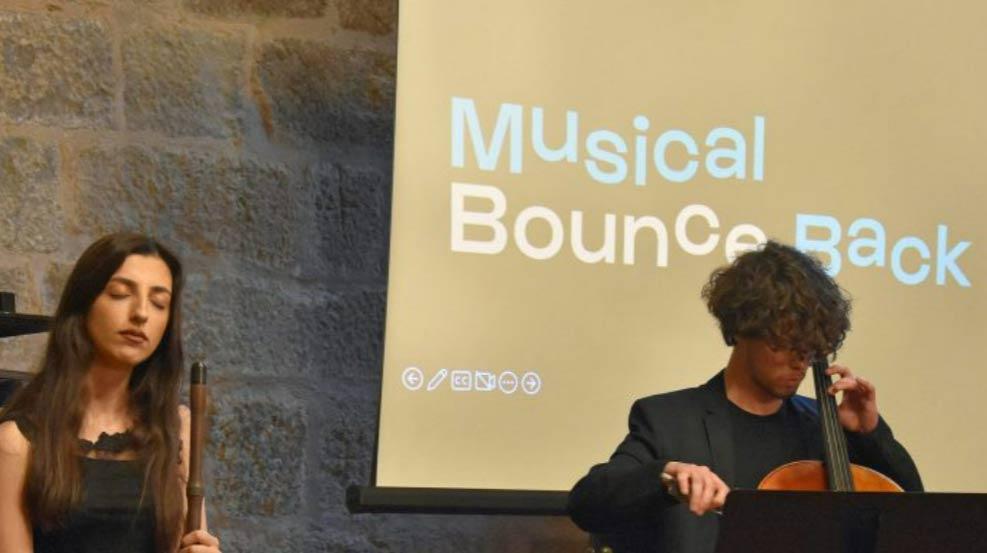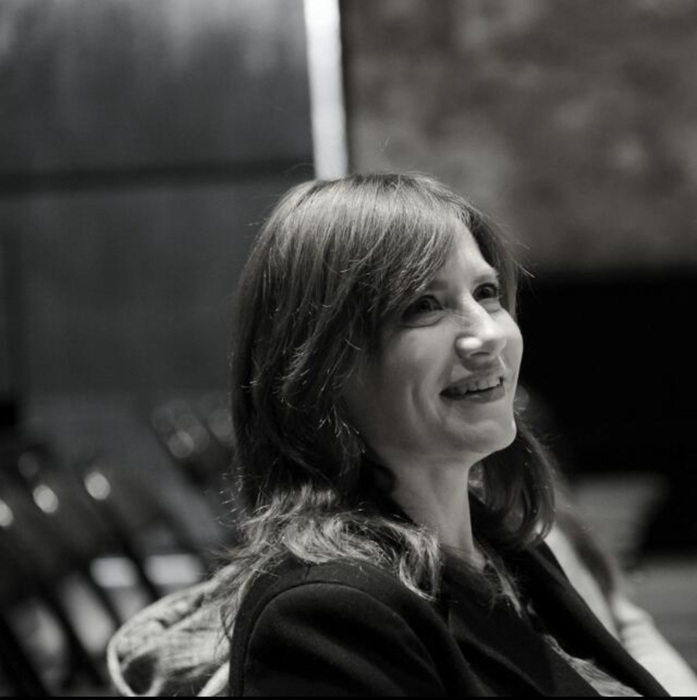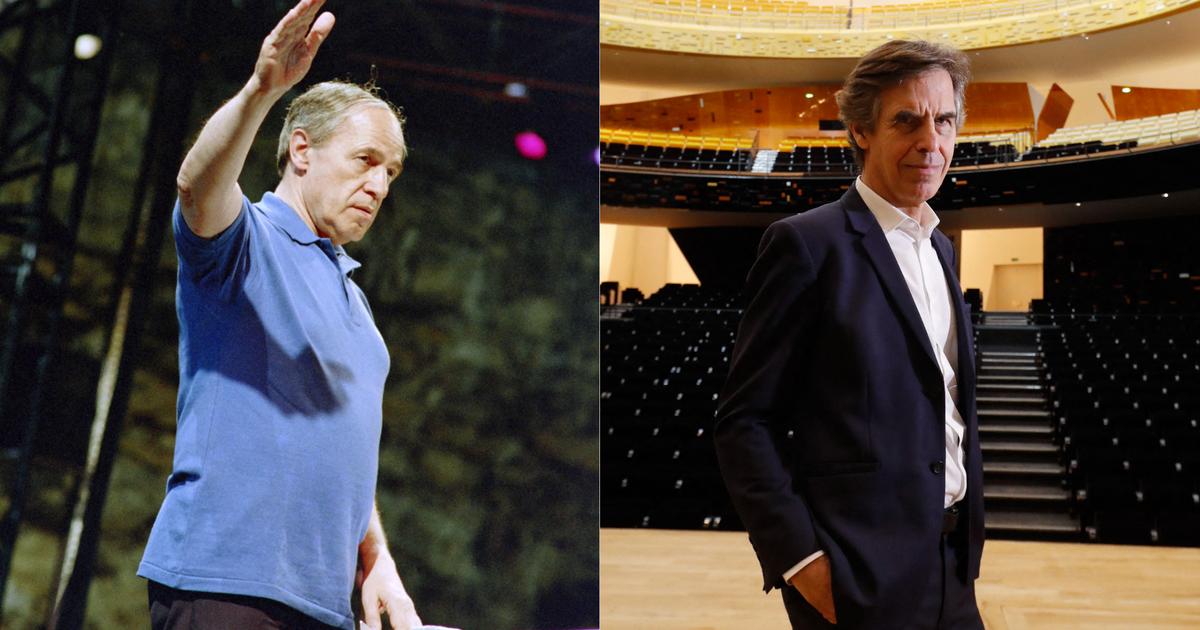Damascus-SANA
The late Syrian composer Adnan Abu al-Shamat is described as an encyclopedia of Arabic and Syrian music, its maqamat, weights and rhythms, and as one of Syria's creators in the twentieth century and the owner of a path that took care of reviving and continuing the Arab lyrical heritage.
The musician Abu al-Shamat, who is honored today by the Ministry of Culture through the revival of the Syrian National Band for Arab Music, a singing evening for the most beautiful of his compositions for Arab lyrical figures. The great artists of the time.
According to the book “The Creators of Syrian Melodies in the Twentieth Century” by researcher Ahmed Boubus, Abu al-Shamat learned to read notes and percussion by Hassan Darkazli, solfege by Elia Sarmendes, taking muwashahat from Said Farhat, oriental melodies and roles from Yahya al-Saudi, playing the oud by Fouad Mahfouz and Muhammad al-Nahhas and the double bass by Felix. Khoury and took the Samah dance from Abdel Wahab Seifi and the musical literature from Nassib Al-Ekhtyar.
During his studies at the institute, Abu Al-Shamat accompanied the vocalists Saeed Farhat and Saleh Al-Mahbek in the nights of religious chanting. He was also with him the two brothers Adnan, Zuhair Menini and Omar Akkad, thus adding religious chanting to his musical knowledge and learning about the methods of composing in it and its lyrical forms.
After graduating from the institute, Abu Al-Shamat began his scientific career with music, so he taught music at the National Institute for the Blind.
In 1958, he worked on Radio Aleppo as a double bass player in the Radio Music Ensemble, and there he began the first steps of composing, so his first songs were “Taba’ al-Mallah” and then the religious song “Yahadi our soul to faith.” The late singer Muhammad Khairy sang them both, then tuned by the great singer Sabah Fakhri at the time, 12 songs that included muwashahat. The most important poems are “The National Anthem” and “My Country and I vowed to Him the Effort,” the words of Adnan Martini.
Among the characters of Aleppo who were composed by Abu al-Shamat Mustafa Maher, Sahar and Maha al-Jabri, and in addition to that, he formed a musical group and sang for the Arab Youth Club, composed a sketch for “Eid al-Nasr” about al-Jalaa from the words of the poet Nazmi Abdel Aziz, and it was presented on the stage of the National Library in Aleppo.
Abu Al-Shamat spent 6 years in Aleppo and in 1964 he moved to Damascus to start his work in the Directorate of Theaters and Music and took over the presidency of the orchestra of the Umayyah Folklore Troupe. He collected and prepared a lot of folkloric songs from the provinces presented by the band. He also composed many poems, muwashshahat and folk songs until he resigned in 1987 to devote himself to his musical activities.
In 1989, he founded the Arabic Angham Ensemble, which he led and set a goal for presenting the Arab lyrical heritage in general and the Syrian lyrical heritage in particular, in addition to presenting his tunes that are an extension of this heritage.
Composing occupied an important part of Abu al-Shamat’s activities. He composed many songs for the great Syrian singers, and the number of his compositions reached 121 until the year 2000, as mentioned in his book “Diwan Al-Muwashahat.” Lee.” Among those who sang his tunes were Karawan, Daoud Muhammad, Yassin Mahmoud, Samir Helmy, Siham Shammas, Hamza Shakur and Abdel Rahman Attia.
He also composed many sketches, operettas and lyrical paintings, including the epic “The People’s Hero”, which tells the story of Syria since the beginning of the twentieth century, and its duration was four hours, and it included 46 paintings.
He put music on many plays, including “An Evening with Abi Khalil Al-Qabbani”, “Kafr Qassem” and “The Tannery Tower” and composed two works for the puppet theater, the Soft Hands and the Sleeping Beauty.
Abu al-Shamat delved into Arabic music, its maqamat and its sciences, and this helped him to delve into the music research, so he wrote the book “The Comprehensive Curriculum” for the Syndicate of Artists and included a complete musical program for the examinations of musicians applying for membership in the Syndicate.
He co-authored three books for the Syrian Song Festival on the authority of Ahmad al-Oubri, Omar al-Batsh and Abu Khalil al-Qabbani, and he was preparing the section on the melodies of the three musicians and put the book “Diwan al-Muwashahat” including all his melodies until the date of the book’s publication in note and word.
The artist Adnan Abu Al-Shamat passed away on the 7th of March 2011 at the age of seventy-seven years, and in his life he received many honors, including a patent of appreciation from the Artists Syndicate 1985, a certificate of appreciation from the Ministry of Information in Syria 1987, a certificate of appreciation from the Festival of Love 1991 and a diploma of honor from the Aleppo Institute of Music and appreciation From the Egyptian Opera House 1993, the Ornina from the Syrian Song Festival for the best tune 1997, and a certificate of appreciation from the Arab Academy of Music 2000.
Rasha Mahfoud








